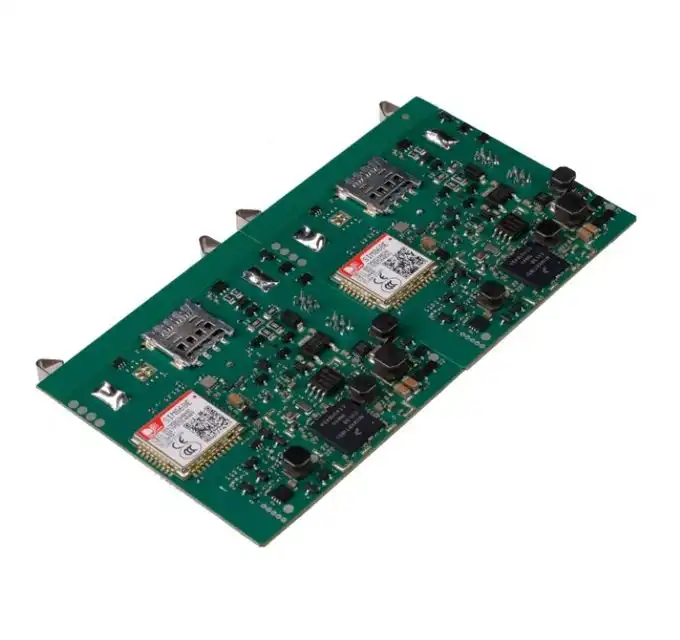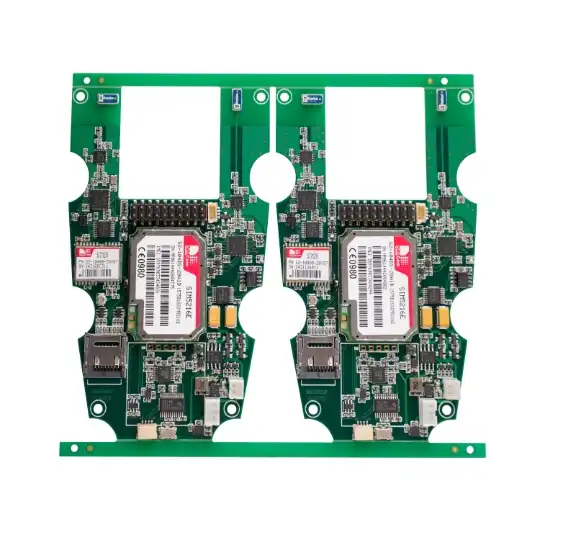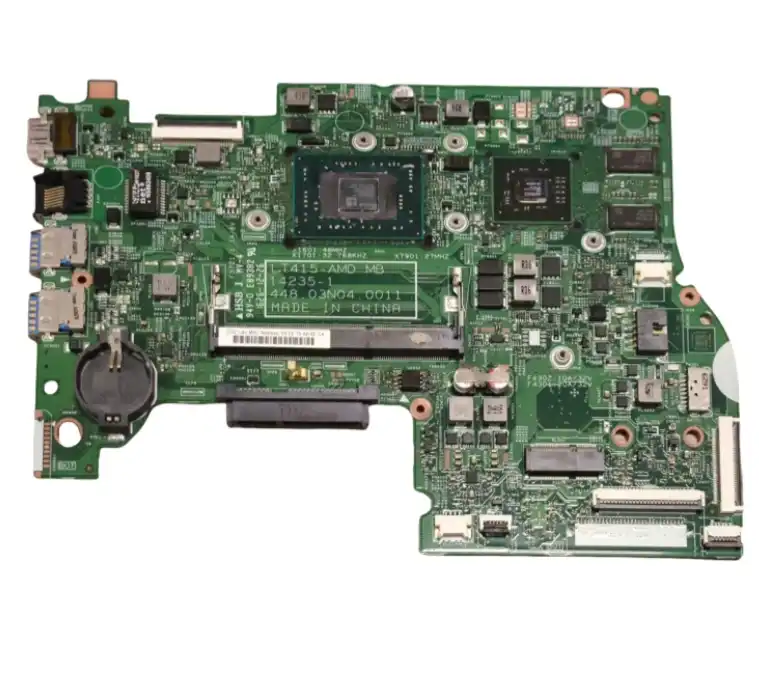How to Choose the Right Medical PCBA Supplier?
Choosing the right medical PCBA supplier is crucial for ensuring the quality, reliability, and compliance of medical devices. To make the best selection, consider factors such as the supplier's experience in medical electronics, their quality management systems, and certifications like ISO 13485. Evaluate their technical capabilities, including HDI PCB manufacturing and specialized medical device requirements. Additionally, assess their ability to meet regulatory standards, their track record of on-time delivery, and their commitment to continuous improvement. By carefully vetting potential suppliers based on these criteria, you can find a partner that aligns with your medical device manufacturing needs.

Introducing the Importance of Medical PCBA in Healthcare Devices
The Role of PCBAs in Medical Equipment
Medical Printed Circuit Board Assemblies (PCBAs) are the backbone of modern healthcare devices. These intricate electronic components play a pivotal role in ensuring the accuracy, reliability, and safety of medical equipment. From diagnostic tools to life-support systems, medical PCBAs are found in a wide array of devices, including MRI machines, pacemakers, insulin pumps, and patient monitoring systems.
The significance of medical PCBAs lies in their ability to process and transmit critical patient data, control device functions, and maintain precise operational parameters. Given the high stakes involved in healthcare, the quality and performance of these PCBAs can directly impact patient outcomes and safety. This underscores the importance of selecting a reputable and experienced medical PCBA supplier.
Unique Requirements for Medical-Grade PCBAs
Medical PCBAs are subject to stringent requirements that set them apart from standard electronic assemblies. These requirements are designed to ensure the highest levels of reliability, durability, and safety in medical applications. Some key considerations include:
- Biocompatibility: Medical PCBAs often need to be compatible with biological systems, especially for implantable devices.
- Sterilization resistance: PCBAs must withstand sterilization processes without degradation.
- Electromagnetic compatibility (EMC): Medical devices must not interfere with other equipment or be susceptible to external electromagnetic interference.
- Miniaturization: Many medical devices require compact PCBAs to achieve portability and patient comfort.
- Longevity: Medical PCBAs often need to function reliably for extended periods, sometimes for years or decades.
- Traceability: Each component and process in medical PCBA manufacturing must be traceable for quality control and regulatory compliance.
Understanding these unique requirements is essential when evaluating potential medical PCBA suppliers. A supplier with expertise in medical electronics will be better equipped to meet these specialized needs and ensure compliance with industry standards.
Key Factors to Consider When Selecting a Medical PCBA Supplier
Quality Management Systems and Certifications
When choosing a medical PCBA supplier, one of the most critical factors to consider is their quality management system (QMS) and relevant certifications. A robust QMS ensures consistent quality and compliance with regulatory requirements. Look for suppliers with the following certifications:
- ISO 13485: This certification is specific to medical device manufacturing and demonstrates the supplier's commitment to quality management in the medical field.
- ISO 9001: While not specific to medical devices, this certification indicates a strong overall quality management system.
- FDA registration: For suppliers serving the U.S. market, FDA registration is crucial.
- IPC standards compliance: Adherence to IPC standards ensures high-quality PCB manufacturing and assembly processes.
These certifications provide assurance that the supplier has implemented rigorous quality control processes and meets industry standards for medical device manufacturing.
Technical Capabilities and Expertise
The technical capabilities of a medical PCBA supplier are paramount in ensuring they can meet the complex requirements of medical devices. Evaluate potential suppliers based on:
- Experience with high-density interconnect (HDI) PCBs
- Ability to handle complex multi-layer boards
- Expertise in miniaturization techniques
- Proficiency in advanced packaging technologies
- Capability to manage tight tolerances and high-precision assembly
- Experience with biocompatible materials and processes
- Knowledge of EMC design and testing
Additionally, consider the supplier's design for manufacturing (DFM) capabilities, as this can significantly impact the quality and manufacturability of your medical PCBAs.
Regulatory Compliance and Documentation
Medical devices are subject to strict regulatory oversight, making regulatory compliance a critical factor in supplier selection. Ensure that your chosen supplier:
- Understands and adheres to FDA regulations (21 CFR Part 820) for medical device manufacturing
- Complies with EU Medical Device Regulation (MDR) if targeting the European market
- Maintains comprehensive documentation for traceability and regulatory submissions
- Has experience with risk management processes (e.g., ISO 14971)
- Can provide necessary documentation for regulatory filings and audits
A supplier well-versed in regulatory requirements can be an invaluable partner in navigating the complex landscape of medical device approvals and compliance.
Evaluating Long-Term Partnership Potential with Medical PCBA Suppliers
Assessing Financial Stability and Scalability
When selecting a medical PCBA supplier, it's crucial to look beyond immediate needs and evaluate the potential for a long-term partnership. Financial stability is a key indicator of a supplier's ability to support your projects over time. Consider the following aspects:
- Company history and track record
- Financial reports and stability indicators
- Investment in new technologies and equipment
- Capacity for scaling production to meet future demand
A financially stable supplier with scalable operations can grow alongside your business, ensuring consistent support as your medical device production expands. This stability also reduces the risk of supply chain disruptions due to financial difficulties or limited production capacity.
Communication and Collaboration Capabilities
Effective communication and collaboration are essential for successful medical PCBA manufacturing. Evaluate potential suppliers based on their:
- Responsiveness to inquiries and concerns
- Transparency in processes and pricing
- Willingness to engage in design collaboration
- Project management capabilities
- Use of modern communication tools and platforms
- Ability to provide regular updates and progress reports
A supplier that excels in communication can help streamline the development process, reduce errors, and foster a more productive partnership. Look for suppliers who are proactive in addressing issues and open to feedback and continuous improvement.
Continuous Improvement and Innovation
The medical device industry is constantly evolving, with new technologies and regulations emerging regularly. A forward-thinking medical PCBA supplier should demonstrate a commitment to continuous improvement and innovation. Consider suppliers who:
- Invest in research and development
- Stay updated on industry trends and emerging technologies
- Actively seek to improve their manufacturing processes
- Offer suggestions for design improvements or cost reductions
- Participate in industry associations and conferences
- Have a track record of successfully implementing new technologies
A supplier focused on innovation can help keep your medical devices at the forefront of technology, potentially providing a competitive edge in the market. Their commitment to improvement can also lead to enhanced quality, reduced costs, and faster time-to-market for your products.
Conclusion
Selecting the right medical PCBA supplier is a critical decision that can significantly impact the success of your medical device projects. By carefully evaluating potential suppliers based on their quality management systems, technical capabilities, regulatory compliance, financial stability, communication skills, and commitment to innovation, you can find a partner that aligns with your long-term goals and helps ensure the success of your medical device manufacturing endeavors.
Remember that the ideal supplier is not just a vendor, but a strategic partner in your medical device development journey. Take the time to thoroughly vet potential suppliers, visit their facilities if possible, and engage in detailed discussions about your specific needs and expectations. By making an informed decision, you can establish a productive and lasting relationship with a medical PCBA supplier that contributes to the quality, reliability, and success of your medical devices.
What sets Ring PCB apart from other suppliers | Ring PCB
Ring PCB stands out with its advanced engineering capabilities, offering high-density stack-up PCBs with up to 48 layers, blind/buried vias, and tight 3/3mil trace/spacing. Our ±7% impedance control is ideal for cutting-edge applications in 5G, medical devices, and automotive electronics. Our smart manufacturing facility, equipped with state-of-the-art technology, adheres to IPC-6012 Class 3 standards, ensuring top-quality production. Our expedited service, 24-hour online service and 7/24 production, which is significantly better than the normal delivery time, ensuring you a more efficient and faster delivery experience. For inquiries, contact us at [email protected].
References
1. Johnson, A. L., & Smith, B. K. (2022). Quality Management Systems in Medical Device Manufacturing: A Comprehensive Guide. Journal of Medical Engineering & Technology, 46(3), 125-140.
2. Chen, Y., & Wang, L. (2021). Advanced PCB Technologies for Next-Generation Medical Devices. IEEE Transactions on Components, Packaging and Manufacturing Technology, 11(2), 278-291.
3. Thompson, R. M., & Davis, C. E. (2023). Regulatory Compliance Strategies for Medical PCBA Suppliers. Medical Device Quality & Compliance, 18(1), 45-58.
4. Garcia, M. S., & Lee, H. J. (2022). Evaluating Long-Term Partnerships in the Medical Device Supply Chain. International Journal of Production Economics, 244, 108381.
5. Patel, N., & O'Connor, K. (2023). Innovation and Continuous Improvement in Medical PCBA Manufacturing. Journal of Manufacturing Systems, 67, 302-315.

Welcome to Ring PCB! Share your inquiry, and receive a tailored quotation!

Ring PCB, your trusted partner for PCB & PCBA Full Turnkey Solutions



